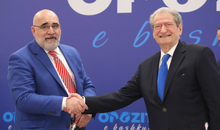
 Flash News
Flash News
Giro D'Italia starts today, here are the road axes that will be blocked in Tirana from 13:00-18:00
Who is the new Pope?
Pope Leo XIV greets the faithful for the first time in St. Peter's Square
"Freedom works", DP welcomes the US position
Reuters: Rama seeks fourth term in elections dominated by corruption and criminal gangs
The President of Zululand visits New York with his wife and hairdresser

Alfred Lela
The Albanian government has recently presented two pictures at the UN General Assembly. Both are dreadful and associated with the highest representatives. The first has to do with a certain bravado of Prime Minister Rama in a mainly imaginary clash with the Russian ambassador to the UN. Taking the temporary leadership of the UN Security Council was used by Mr. Rama precisely for his best role: joking at the expense and burden of others. Rama has not clashed with the Russians, not even as Enver Hoxha once did, who, even though to preserve his power, showed some natural anti-Russian standing. While Hoxha was protected by paranoia and delirium, Rama is protected by NATO and America when playing battle with the Russians.
So anyone who tried to extract bravery from jokes is doing a service to Rama and his boasting, but not to the truth. As the head of the Security Council, Albania can neither create nor maintain balances; they are in the hands of the Great Powers; being their appendage, Tirana's elite can not play the global strongman without becoming ridiculous.
Rama looked in New York like those Albanian boxers around the world who proclaim themselves champions in matches that they organize themselves, in leagues that no one recognizes, and who are supported by delusional and short-sighted businessmen from Albania who see themselves as the reincarnation of Don King.
The other view is entirely dreadful. If Rama can keep at the infotainment he creates because his readings and charisma allow him, the President of the Republic is an example of the Soviet apparatchik or a bygone Albania at the beginning of the transition, which many of us thought as lost.
An Albania that oozed poverty and misery wore the clothes of humanitarian aid, slept on its feet in the endless queues for visas at the Greek or Italian embassies, and ate meat by the pound as if in a desperate attempt to restore the lost proteins of communism, sold its girls in marriage or prostitution, to soldiers of humanitarian aid operations or elders of neighboring countries, and so on.
At that time, the delegations of sports, government, or non-governmental associations were filled with various people, regardless of the purpose of the visit or tour. A director arranged his lover, a deputy minister his cousin, a sportsman his neighbor, making Albanian dispatches a mess of biographies and characters that could fill a vaudeville. People wanted to get out.
This taste, almost forgotten, was brought back by President Begaj with the 22-person delegation that headed to New York, likely to participate in the work of the UN General Assembly. The press was mostly silent, but the social media were abuzz, both with the number and the presidential probe related to foreign policy and the affairs of the Presidency, as this article has with oil drilling in Alaska.
The president had turned the official send-off into a personal dinner; he had taken with the state finances and the citizen's taxes those he would invite for an evening at his house. There were tile makers and hairdressers there, that is, friends or acquaintances of the President and his circle.
Perhaps more severe than the presidential act is the public silence about it. There was no reaction from the Presidency. The leading media did not deal with it, considering it not news, perhaps because Rama and Begaj pleased them by including journalists from the main TV channels. What has been lost in all this deed is the transformation of the state and its myth into a washroom for anyone holding an office for four or eight years.
Begaj has humiliated the Presidency even more because he revealed in it, perhaps never before, the complexes of power; the man with power proves his power by not doing the things he has in hand, that is, by limiting himself.
Bajram Begaj does not limit himself because he did not come there due to a social or political contribution. He is an appointee of the prime minister and the majority. He sees the state office not as a political attribute but as an opportunity to show the small Albanian world that he has succeeded and can send the woman's hairdresser to America in an official delegation.
Ultimately, he can be tried for personal charlatanism, but not political. This last license plate belongs to Edi Rama. He turned the country into a Zululand where below are the reins of henchmen, in the middle the vaudeville of the presidential delegation, and at the very top him, the First Zulu.
Latest news


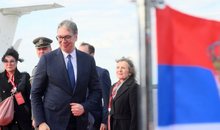

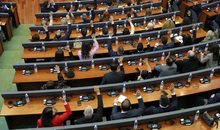
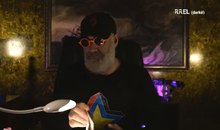

Foreign exchange/ How much foreign currencies are bought and sold today
2025-05-09 08:19:18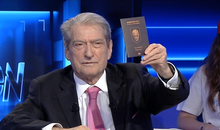
The gift that Berisha gave to Rama 'live'
2025-05-09 08:13:51
3 signs that show you are spiritually protected
2025-05-09 08:05:39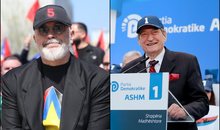

Bars can't hold back anymore, start increasing coffee prices, 4.7% more in April
2025-05-09 07:46:49
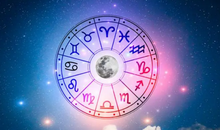
Horoscope, what do the stars have in store for you today?
2025-05-09 07:22:06
Unstable weather, afternoon brings rain
2025-05-09 07:01:29
Morning Post/ In 2 lines: What mattered yesterday in Albania
2025-05-09 06:45:46
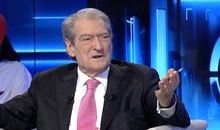
How did LaCivita change the DP campaign? Berisha: He studied the opponent
2025-05-08 22:49:51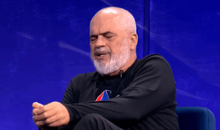
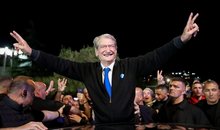
David defeats Goliath
2025-05-08 22:15:50

Journalist: There are SPAK infiltrators in party headquarters
2025-05-08 21:55:15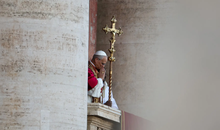
Who is the new Pope?
2025-05-08 21:48:13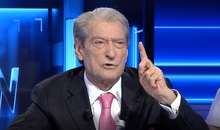
Berisha finally reveals when he will retire from politics
2025-05-08 21:33:46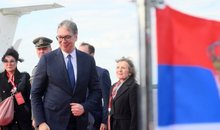


LaCivita in Lezha: Albanians will fire Edi Rama from his job
2025-05-08 21:11:20
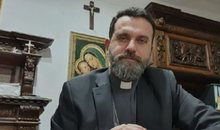

Berisha: LaCivita chose us because he believes in Reagan's program
2025-05-08 20:48:40
He rejected America to serve Pogradec, Genti Çela tells about life in "Elevate"
2025-05-08 20:26:28
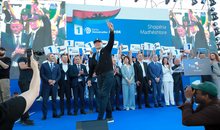
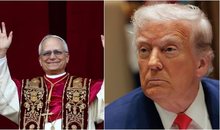

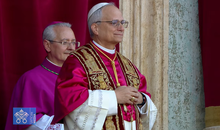
Pope Leo XIV greets the faithful for the first time in St. Peter's Square
2025-05-08 19:29:33


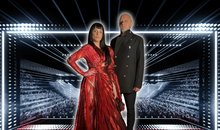
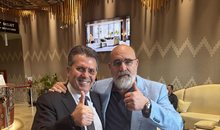
Photo session with LaCivitta in Tirana: For Great Albania
2025-05-08 18:40:18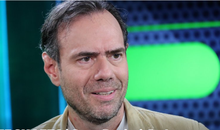
Source: DASH decision a personal victory for Berisha
2025-05-08 18:30:10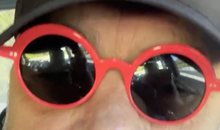
Take off those crazy glasses and see where you've taken him?
2025-05-08 18:02:47
LDK files criminal charges against members of the incumbent Government
2025-05-08 18:02:00

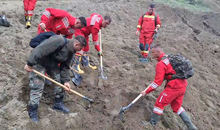
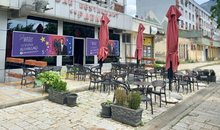



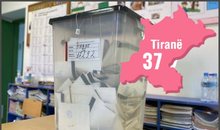
BIRN analysis: Tirana, the determining district for the future majority
2025-05-08 16:04:03




Chris LaCivita's contract with the DP, Berisha: 100% correct and clean
2025-05-08 15:11:11
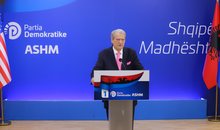
"These are the peak days", Berisha reveals when he will travel to the USA
2025-05-08 14:45:25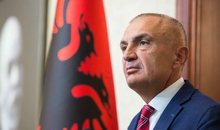


Endless boxes with filled-in ballots, DP demands separation of votes from Greece
2025-05-08 14:11:12


Photo/ Who are the 3 associates of Talo Çela arrested in Dubai?
2025-05-08 13:37:09

Hetimi për krimet zgjedhore, Altin Dumani zbarkon në Prokurorinë e Shkodrës
2025-05-08 13:06:21
DASH paves the way for Berisha, Alizoti: Great news on the eve of Great Albania!
2025-05-08 13:03:48

"Freedom works", DP welcomes the US position
2025-05-08 12:48:07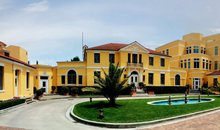
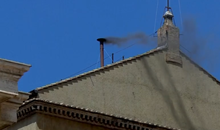
Black smoke rises from the Sistine Chapel, the Vatican still without a Pope
2025-05-08 12:26:18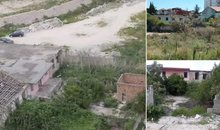
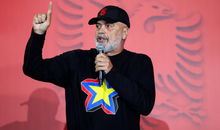
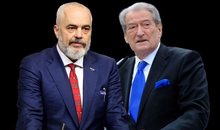



Davide Pecorrelli extradited to Albania
2025-05-08 11:29:04
'May 11, Albania will react', Xhaferri: Electoral criminals will pay
2025-05-08 11:21:46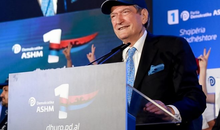
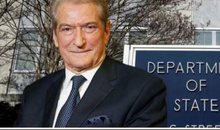
Gjin Gjoni: Non Grata fell, Rama should get ready to go to McGonigal
2025-05-08 11:01:54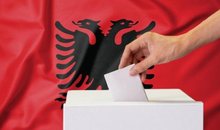
May 8th deadline for immigrants to vote in Greece extended by one day
2025-05-08 10:48:42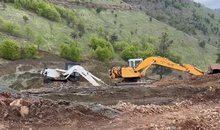
Collapse of massive chrome structure, still no trace of 29-year-old
2025-05-08 10:40:04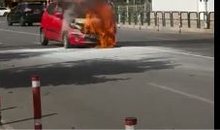
Vehicle bursts into flames in Paris Commune
2025-05-08 10:25:43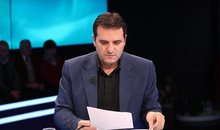
He gave land to his father and cousin, Basir Çollaku denounces the SP candidate
2025-05-08 10:16:16
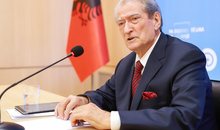
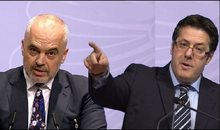

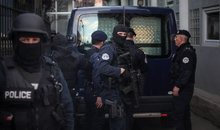
Electoral Crimes/ BKH agents and Police conduct checks in Shkodra
2025-05-08 09:19:13
3 associates of Talo Çela arrested in Dubai
2025-05-08 09:02:28
Mouse in the owl's claws, Chris LaCivita responds directly to Rama
2025-05-08 08:45:40
Foreign exchange, how much foreign currencies are sold and bought today
2025-05-08 08:30:38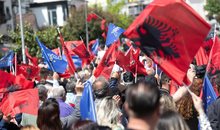
BIRN: Organized crime, the 'invisible party' of the Durrës elections
2025-05-08 08:26:35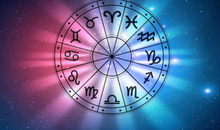
Horoscope, what do the stars have in store for you today?
2025-05-08 08:08:15
Cloudy and rainy, what the weather is expected to be like throughout the day
2025-05-08 07:52:13
Posta e mëngjesit/ Me 2 rreshta: Çfarë pati rëndësi dje në Shqipëri
2025-05-08 07:40:16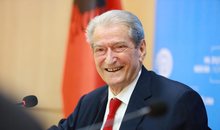


Rama attacks Bardhi: Fier cannot be represented by the world's gas
2025-05-07 22:36:22
